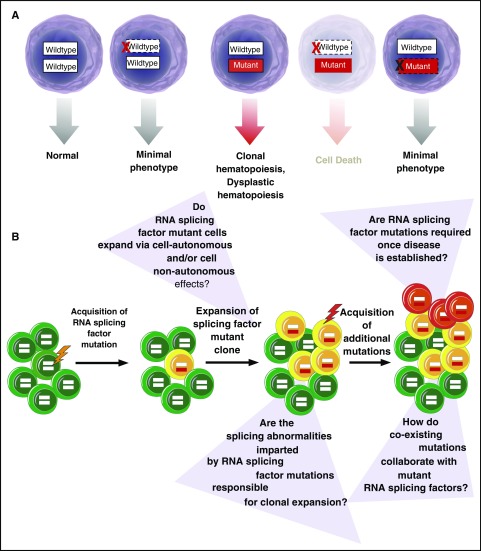Figure 2.
Requirement of RNA splicing factor mutations in disease initiation vs maintenance. (A) RNA splicing factor mutations are consistently expressed in the presence of the wild-type allele.1,3,63 These mutations frequently occur early in the pathogenesis of MDS41-43 and related myeloid neoplasms and are also enriched in clonal hematopoiesis of indeterminate potential,5,45,46,64 suggesting their role in disease initiation. Consistent with a role in disease initiation, expression of these mutations in the heterozygous state in mice in vivo results in an MDS-like phenotype.6-8 Curiously, however, genetic deletion of the mutant allele appears to have no phenotypic effects in multiple cell types in vitro,11,25,44 questioning the role of the mutant allele once a disease is established. In contrast, deletion of the wild-type allele in the setting of expression of the mutant protein is associated with cell lethality.11,23,44 (B) Schematic representation of acquisition of RNA splicing factor mutations early in the pathogenesis of clonal hematopoiesis of indeterminate potential and MDS with questions about the role that these mutations at each stage of disease development.

